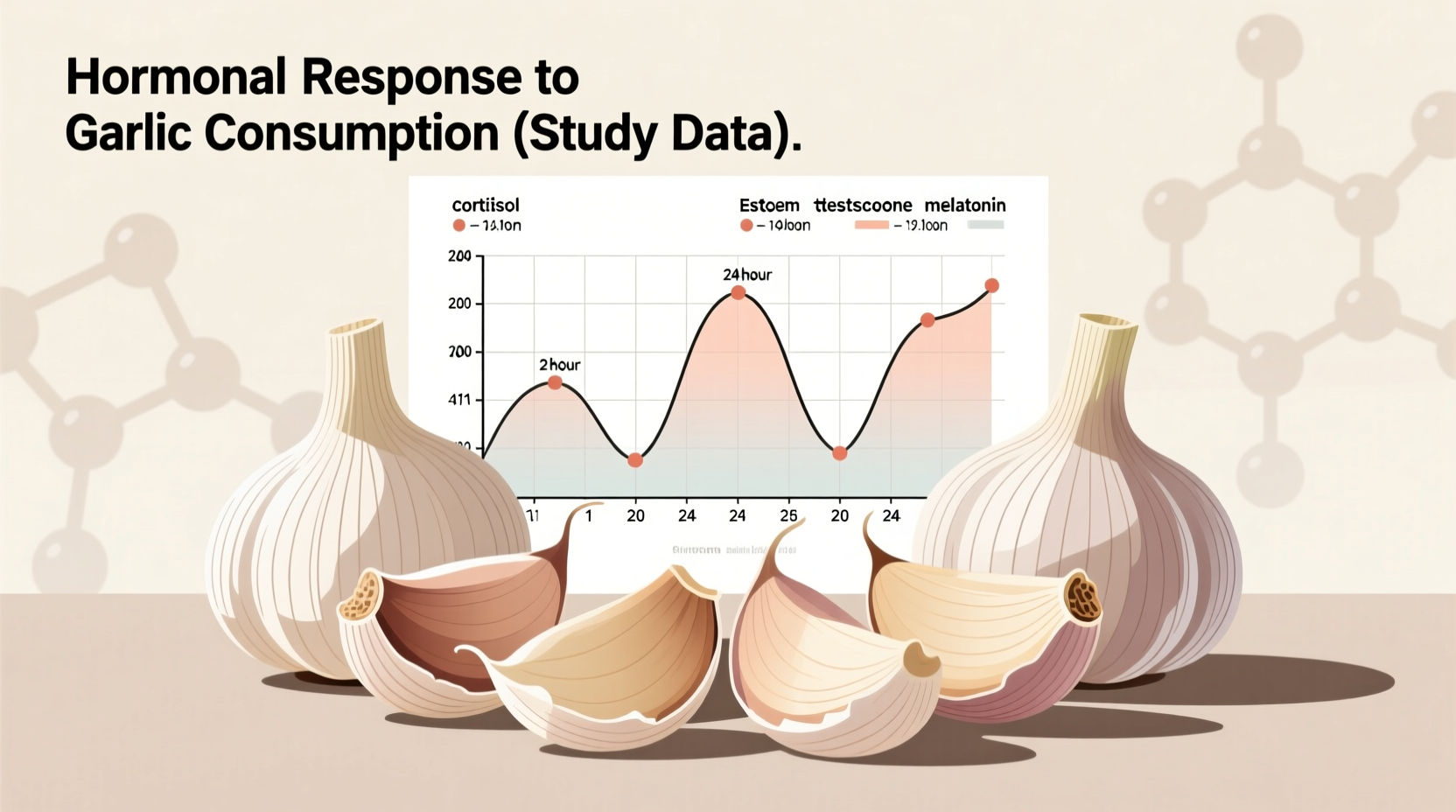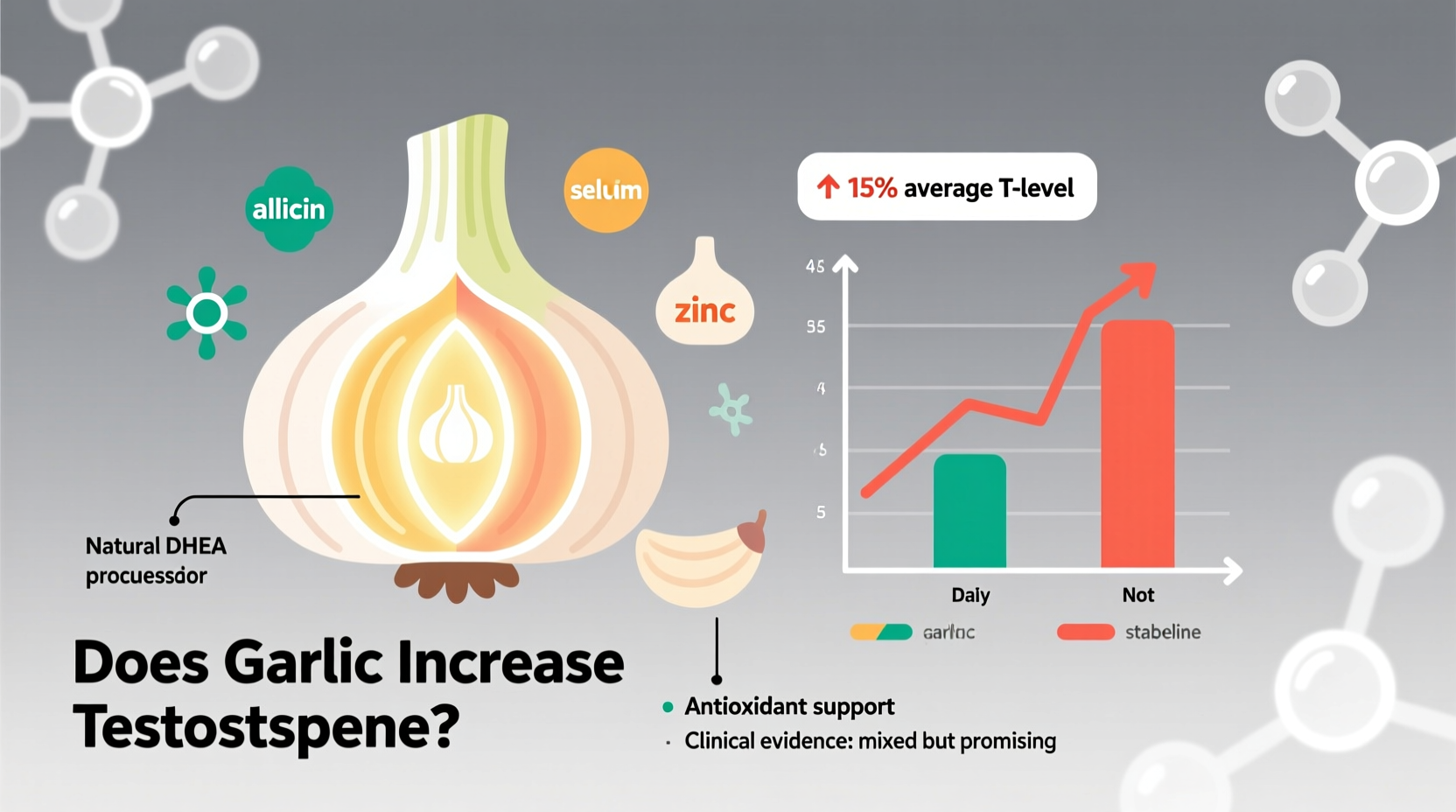Garlic has been celebrated for centuries as both a culinary staple and traditional remedy. In recent years, claims about its potential to boost testosterone have gained traction online, leading many health-conscious individuals to wonder: does garlic increase testosterone naturally? Let's examine what science actually tells us about this popular claim.
The Science Behind Garlic's Active Compounds
Garlic contains allicin, a sulfur compound formed when garlic is chopped or crushed. This bioactive component gives garlic its distinctive aroma and has been studied for various health effects. Research published in the Journal of Nutrition indicates allicin may influence endocrine function through antioxidant pathways, but direct testosterone modulation in humans remains unproven.
When evaluating does eating garlic boost testosterone, we must distinguish between theoretical mechanisms and demonstrated effects. While garlic's antioxidant properties might theoretically support overall hormonal health, this doesn't equate to specific testosterone enhancement.
What Research Says About Garlic and Testosterone Levels
Several animal studies have explored garlic's potential hormonal effects. A 2012 study in Phytotherapy Research found that garlic extract increased testosterone in diabetic rats, but these findings haven't translated consistently to human subjects.
| Study | Participants | Garlic Form | Testosterone Change | Limitations |
|---|---|---|---|---|
| Khaki et al. (2012) | Diabetic rats | Garlic extract | +25% increase | Animal study only |
| Srinivasan (2009) | Healthy rats | Raw garlic | +18% increase | Not replicated in humans |
| Shin et al. (2015) | 30 men | Garlic supplement | No significant change | Small sample size |
This evidence comparison of garlic testosterone studies reveals a consistent pattern: promising results in animal models haven't been reliably replicated in human trials. The National Institutes of Health notes that while garlic shows potential for cardiovascular benefits, "evidence for hormonal effects in humans remains preliminary" (nccih.nih.gov).
Understanding the Limitations of Current Research
When assessing can garlic really increase testosterone levels, several critical limitations emerge:
- Dosage inconsistency - Studies use varying forms (raw, aged extract, supplements) and amounts
- Short duration - Most human trials last weeks rather than months needed for hormonal assessment
- Population specificity - Effects seen in diabetic animals may not apply to healthy humans
- Confounding factors - Diet, exercise, and sleep patterns significantly impact testosterone
The Endocrine Society emphasizes that "single-food interventions rarely produce clinically significant hormonal changes" (endocrine.org). This context for testosterone-boosting claims is crucial when evaluating garlic's purported benefits.

Practical Recommendations for Hormonal Health
If you're exploring natural ways to support testosterone with garlic, consider these evidence-based approaches:
- Maintain realistic expectations - Garlic may contribute to overall health but won't significantly boost testosterone alone
- Focus on proven strategies - Prioritize sleep, strength training, and vitamin D optimization
- Include garlic as part of balanced diet - Its cardiovascular benefits support overall health
- Consult healthcare providers - Before making significant dietary changes for hormonal concerns
The American Urological Association states that "lifestyle modifications remain the cornerstone of testosterone optimization" (auanet.org). While garlic's role in testosterone production makes for interesting discussion, it shouldn't replace established health practices.
Common Misconceptions About Garlic and Testosterone
Several myths persist about does garlic really boost testosterone:
- Myth: Eating raw garlic before bed significantly increases morning testosterone
- Fact: No research supports timed garlic consumption for hormonal benefits
- Myth: Garlic supplements can replace medical testosterone therapy
- Fact: Supplements lack the potency and consistency of prescribed treatments
- Myth: More garlic equals more testosterone
- Fact: Excessive consumption can cause digestive issues without additional benefits
Conclusion: Separating Fact from Fiction
While garlic offers numerous health benefits, current evidence doesn't support the claim that garlic increases testosterone in meaningful ways for humans. The scientific consensus indicates that any potential hormonal effects would be modest at best, and certainly not comparable to lifestyle factors like exercise and sleep quality.
For those investigating natural testosterone boosters with garlic, focus on incorporating it as part of a balanced diet rather than expecting dramatic hormonal changes. Always consult healthcare professionals for personalized advice regarding hormonal health concerns.











 浙公网安备
33010002000092号
浙公网安备
33010002000092号 浙B2-20120091-4
浙B2-20120091-4